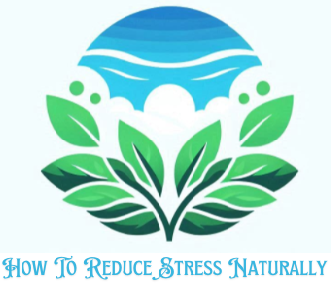 What are the best ways to relieve stress? That is why we are here to get these answers. Right?
What are the best ways to relieve stress? That is why we are here to get these answers. Right?
I’m going to kick things off by breaking down what stress really is. Think of stress as your body’s alarm system.
It’s your built-in response to any demand or threat. When you are stressed, your body pumps out hormones like cortisol and adrenaline priming you for action. It feels like we are thrown back to the “fight or flight” days of our ancestors.
Stress isn’t always the villain it’s made out to be. It can be a motivating force, helping you meet those deadlines or react quickly to avoid danger. Basically saying, stress can be a positive thing for you. I know, I know, that is hard to believe, but true. It helped our ancestors to survive and is still needed for us today.
However, too much stress, or chronic stress, is where the problems start to creep in. Your body is kept in a constant state of high alert, and that’s not good. Chronic stress is something you need to avoid at all costs even if sometimes it is not easy to do.
Why Stressed?
You might be wondering, “What makes us stressed?” Well, stress triggers are everywhere, from the pressure to perform at work or school to personal relationships, financial worries, and the endless barrage of information we consume daily.
For me, stress can come in different forms and different times. Sometimes it is pressure from my family, conflicts with my loved ones, and so many worries that are hard to count these days. A similar way is for everyone I think.
How
 So, how do you know if you’re stressed? The signs are there if you’re paying attention. Trouble sleeping, muscle tension, and changes in appetite are just a few indicators.
So, how do you know if you’re stressed? The signs are there if you’re paying attention. Trouble sleeping, muscle tension, and changes in appetite are just a few indicators.
It’s not just about feeling anxious or overwhelmed – it can contribute to health issues like high blood pressure and heart disease.
Don’t worry too much about this because you’re not alone, and there are ways to handle it. That is precisely what I’m here to help you with. Moving from understanding stress, we are going to look at everyday strategies that can bring some much-needed calm to your life.
Think of it as building your toolkit for stress relief. You can always change how you do things as you find out what resonates with you and what doesn’t.
Everyday Stress Relief: Simple Strategies for Calm
If you want to reduce stress, incorporating some straightforward tactics into your daily life can make a big difference. Let’s explore a few.
Mind
 Starting with mindfulness and meditation might sound a bit intimidating if you’re new to it. Don’t worry too much about getting it perfect, no need to be perfect, it is practice and a journey.
Starting with mindfulness and meditation might sound a bit intimidating if you’re new to it. Don’t worry too much about getting it perfect, no need to be perfect, it is practice and a journey.
It’s really about carving out a little time each day to quiet your mind. You can begin with just a few minutes of deep breathing or guided imagery, and increase the time as you get comfortable.
To learn more about meditation and how it can help you with relaxation and stress relief, CLICK HERE to get more information.
Body
It’s not just about the mind, though. It never is just about the mind even if the mind is a really essential thing. Your body plays a huge role in how you experience stress.
A balanced diet, laden with whole foods, plenty of water, and nutrients that support your nervous system, is going to help you maintain your energy and mood.
If you wanna find out more about vitamins and supplements that can help with stress management and improve your health, CLICK HERE for more information.
Pairing that with regular exercise — anything that gets your heart pumping, be it a brisk walk or a dance class — will release endorphins. Those natural mood lifters would help us if we want to better manage stress and at some point feel free from it even if it is a faraway dream.
Sleeping
Lastly, getting enough sleep cannot be understated. To be honest: with you: sleep can make or break your stress levels. Developing a consistent sleep routine and ensuring you’re getting the recommended 7-9 hours can transform your daily outlook. It can also bolster your body’s ability to handle stress.
 As you implement these practices, you will begin to notice changes in your stress levels.
As you implement these practices, you will begin to notice changes in your stress levels.
This isn’t a one-size-fits-all approach, so adjust as needed and choose what resonates with you.
I always used to say not all methods and things work for everyone, what helps one person doesn’t necessarily help another one. We are different and that makes all of this unique and special, in my opinion, and that is a beautiful thing.
Gradually, you will build a foundation of daily habits that support a more stress-resilient lifestyle which we all need and want. Now let’s move to another section on long-term stress management.
Long-Term Stress Management: Building Resilience
You are going to find out about how making certain lifestyle changes and adopting new coping strategies can make you more resilient to stress in the long run.
We all want to be more resilient to stress. Right? This isn’t just about quick fixes even if sometimes we need them. It is also about laying down foundations that will stand up to stress over time.
Support
I am here to help you with a crucial aspect: bolstering your support network. Humans are social creatures – we need and thrive on connection. That’s why having friends, family, or even a pet can play a monumental role in how you manage stress. Being part of a community provides emotional support. It can be a lifeline during tough times.
 To be honest, I like to be alone, but I still need human connections like friends or family as we all do.
To be honest, I like to be alone, but I still need human connections like friends or family as we all do.
Sometimes quick, shorter, or longer talk can make all the difference and you already start feeling less stressed or worried.
Cognitive-Behavioral Strategies
Another key to long-term stress management is embracing cognitive-behavioral strategies. These are tried-and-true methods that can change the way you perceive stress, helping you to dismantle negative thought patterns and build positive ones in their place.
Boundaries
Additionally, setting clear boundaries, especially in your work life, can help prevent the feeling of being overwhelmed. This could mean learning to say no to extra projects when your plate is already full. I know many people have problems saying no even if it is too much to handle.
Please make sure that your work hours don’t bleed into your personal time. Choose something that resonates with you and fits into your work culture.
Even if the first attempt fails, don’t give up. You can always adjust and change things moving down the road, finding the balance that suits your evolving lifestyle and stress levels. All that can make you happier and less stressed.
If you are wondering how to bridge the gap between managing stress on your own and seeking professional help, that’s exactly what we’re going to cover in the next section.
When to Seek Help: Recognizing the Need for Professional Support
Sometimes, despite our best efforts, stress can swell into a tidal wave that feels impossible to handle alone. We can’t talk about stress reduction and know all the tips and tricks, but sometimes could be not enough. Then it is time to look for help.
This is when professional support can make a world of difference. Knowing when to seek help is important.

So if you are experiencing overwhelming anxiety, persistent negative thoughts, or a feeling of being chronically overwhelmed, it might be time to reach out.
Professional Support
Therapists and counselors specialize in stress management techniques and can offer personalized strategies for coping. They create a safe space to explore your emotions and develop skills to navigate stress more effectively.
The plus is that they can help you work through underlying issues that might be contributing to your high-stress levels. Sometimes you can’t see past these issues and need professional help.
Please don’t worry too much about the stigma that used to be associated with therapy. People didn’t know before, but now we all know better. Today, seeking help is seen as a proactive step towards better mental health. We all need to think about our mental health the same we do with physical health.
Keep in mind that your first attempt at finding the right therapist doesn’t need to be your last one. You can always adjust your approach down the road. We all are different and each of us is unique in our ways so what is good special for one, would not be good for another, different approaches, and all that.
Other Ways
There are numerous stress management resources available—online therapy platforms, support groups, workshops, and even apps designed to help you manage your daily stress. Choosing something that you like is key.
If you want to take the first step but don’t know where to start, ask your primary care physician. You can also look for local mental health organizations. For immediate support, helplines can be a valuable resource.
Remember, acknowledging that you need help is a sign of strength, not weakness. It’s about taking control of your well-being and creating the way towards a healthier, happier you. Who doesn’t want that?
Conclusion
 Today we talked about what are the best ways to relieve stress, about what to do and different strategies for it.
Today we talked about what are the best ways to relieve stress, about what to do and different strategies for it.
We all are on the road to better understanding stress, ourselves, and what is best for us. We are on the road to better, healthier, and happier ourselves.
When it comes to stress, a lot is happening very quickly inside your body. Now we are aware of that I hope. That’s why the strategies I like to leverage are the ones that have stood the test of time: support networks, cognitive techniques, and boundary setting.
Your mental health is important and you need to do all you can to help yourself. Remember that sometimes when all is a bit too much, we need to look for professional help.
If you wanna find out more about meditation, CLICK HERE for more information
I like to hear from you, so please leave me a comment below to let me know if this article helped you.
If you want to know more about ways how you can manage stress, please subscribe to this blog, and you will receive a notification, when a new post is published.
If you think this article is helpful, please share it.
What do you think about these strategies to relieve stress that we all struggle these days? What kind of strategies are the best for you? Any advice or suggestions? Please let us know and write in the comment section below.
Thanks! Have a nice day! Until later
Linda Mo
Founder and owner of How To Reduce Stress Naturally
